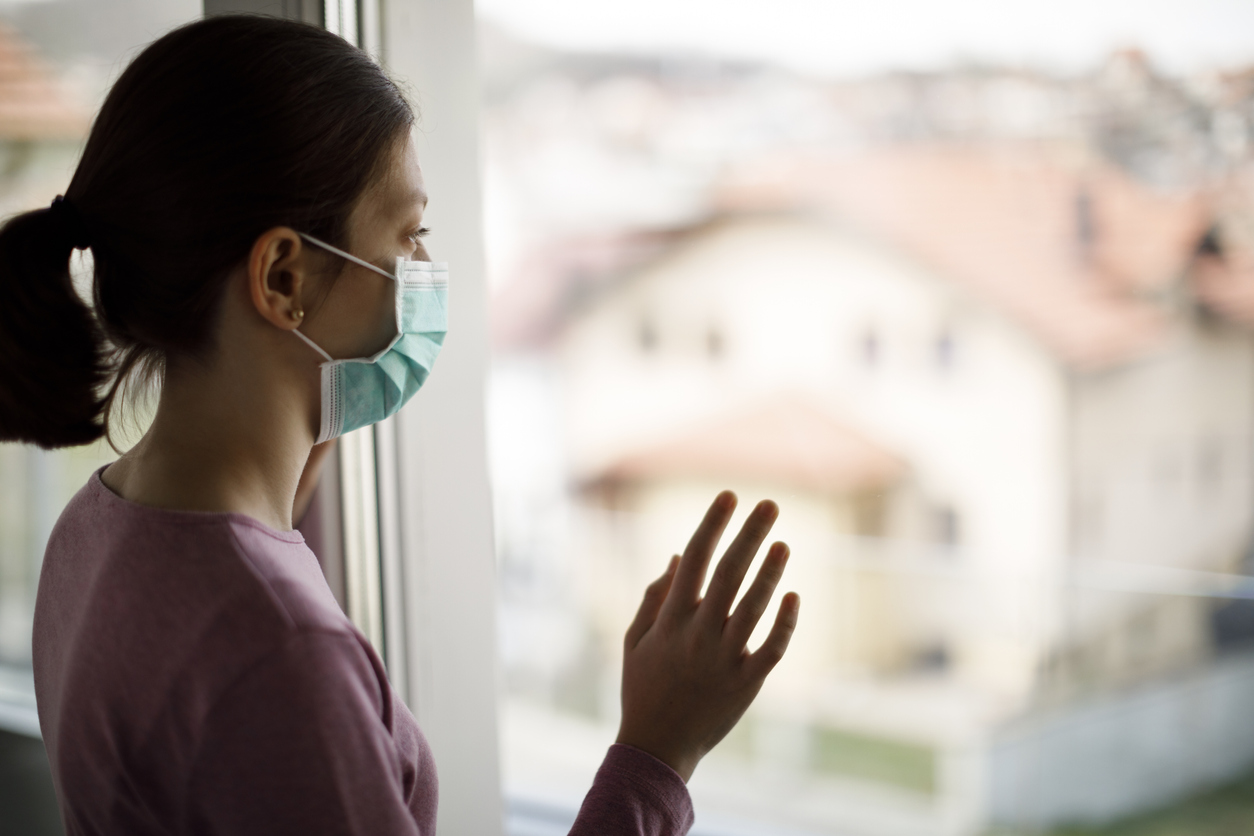Authored by: Sarah Dahl, RN, hospice nurse
Since the coronavirus COVID-19 pandemic began, nurses like me have received an outpouring of gratitude from the community. The recognition feels good because, without a doubt, this crisis is an ordeal for frontline medical workers.
I’m a hospice nurse for HopeHealth. My job is to comfort patients at the end of life, along with their families, and allow for a peaceful, dignified death.
Hospice nursing came to me in a roundabout way.
When I was in high school, my mom suggested I consider a nursing career, but I was dead set against it. Instead, I wanted to be a radiology technician.
To apply for radiology school, I needed to take prerequisite medical courses, and in the middle of those I changed my mind and ended up applying for nursing school after all. (We never want to admit when our moms are right, but I’m glad I switched!) That was fifteen years ago.
For many years I led the memory care program at an assisted-living community in Providence. Part of my job was to counsel families through the late stage of life, with all of its realities and emotions. Bringing comfort to older adults came naturally to me.
Over time I got to know many hospice agencies that visited our facility, but the nurses and chaplains from HopeHealth stood out. They clearly loved what they did, and provided such wonderful, continuous care to our families. In fact, they impressed me so much that I decided to join them as a hospice nurse.
Through tears David reminisced about his happy childhood. He told his mom she was a wonderful mother and he loved her.
The current crisis facing our nation has changed my day-to-day job in so many ways.
First, we must don a suit of personal protective equipment (PPE)—face mask, eye protection, hair cover, gown and gloves—before every visit with a COVID-19 patient. All care providers look the same, and hard-of-hearing patients can no longer read my lips, facial expressions or body language. I do the best I can to speak slowly and repeat myself, but it’s not ideal.
The quarantine also requires nurses to act as a lifeline between COVID-19 patients and loved ones. Whenever I visit a patient, I offer to call or FaceTime a family member or friend. Patients really light up at the sound of their loved ones’ voices.
Sadly, though, we also are facilitating virtual goodbyes. I recently cared for a 71-year-old patient named Carol* in the intensive care unit of a local hospital. She had COVID-19 so her family couldn’t see her.
Carol was in the deep, coma-like sleep that we often see in patients who are approaching the end of life. Even though she was non-responsive, as a sign of respect, I quietly introduced myself and told her I needed to take her blood pressure. Then I left the room, removed my PPE and continued my shift.
Later that day, Carol’s son, David, called the nurses’ station. I told him his mother appeared comfortable and wasn’t showing any signs or symptoms of distress. He knew time was short and asked to see her. I told him we’d make it happen.
Donning full PPE once more, I called David’s number from Carol’s bedside via FaceTime. He and his children appeared on my screen. I turned the phone and placed it close to Carol’s face so they could see her.
Through tears, David reminisced about his happy childhood. He told his mom she was a wonderful mother and he loved her. He said goodbye.
I cried, too, and hoped she understood what he was saying.
It’s a scary time. My job, though, is to bring comfort to others at end of life, and accomplishing that task brings comfort to me.
The last truth to share about this pandemic is that frontline health care workers, especially those in nursing homes, are under tremendous stress.
Health care providers need all the support they can get, and HopeHealth’s virtual support group for professional caregivers can be helpful. This group is free and open to the public.
Myself, I’m naturally worried about bringing the virus home to my four children. After coming home from work, I spray my shoes with Lysol and leave them on the porch before showering. It’s a scary time.
My job, though, is to bring comfort to others at end of life, and accomplishing that task brings comfort to me. After all, caring for others is what nurses do.
*Patient names were changed to protect privacy.

